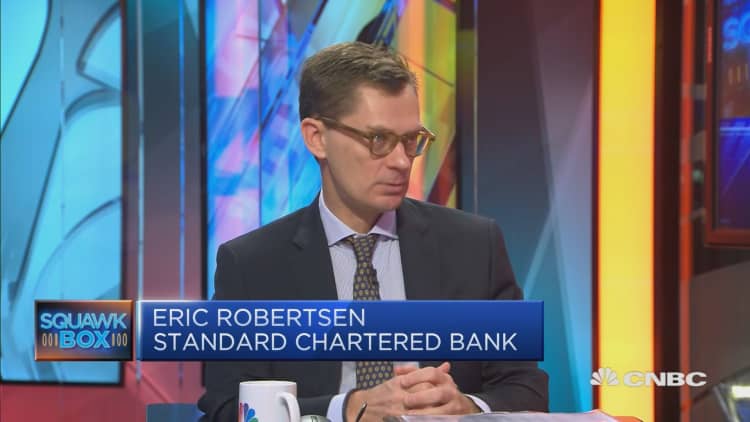The greenback fell Wednesday after President Donald Trump said in a tweet that the U.S. should match China and Europe's "currency manipulation game."
"China and Europe playing big currency manipulation game and pumping money into their system in order to compete with USA," Trump said on Twitter. "We should MATCH, or continue being the dummies who sit back and politely watch as other countries continue to play their games - as they have for many years!"
The U.S. Dollar Index, a basket of the greenback vs. major currencies, slid into the red following the Trump tweet before recovering.
"He's amplifying a move that to me is happening anyway, for the right reasons," said Mark McCormick, FX strategist at TD Securities.
"It's pretty clear the currency is definitely a focus … you have some new Fed nominees which lean on the dovish side, you have the Fed ready to cut rates, you have a slowing U.S. economy," McCormick added. "There's a period here where the currency is going to weaken on these things."

The president's attack on what he views as unfair tinkering by China and Europe came less than two months after the administration declined to label China a currency manipulator. That decision came despite Trump's complaints that Beijing unfairly devalues its currency, contributing to the outstanding trade deficit between the world's two largest economies.
The Treasury Department, led by Secretary Steven Mnuchin, said in May that no country met the criteria to be formally considered as one seeking to gain unfair trade advantages over the U.S. by toying with its currency. But the report also said that nine nations — including China, Germany, Ireland, Italy, and Japan — are on its monitoring list.
The Treasury Department did not immediately respond to CNBC's request for comment.
Chinese officials in 2018 reintroduced measures to stabilize its managed currency, aimed at keeping the yuan's daily midpoint fixed to a relatively stable value. China has faced international pressure in the past for what other world leaders considered unfair manipulation of its currency.
A devalued currency can boost one nation's exports as the decline in the currency makes that country's goods cheaper.
— CNBC's Patti Domm contributed to this report.



